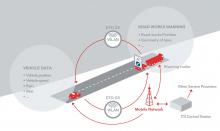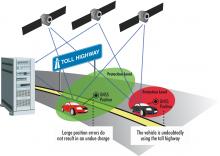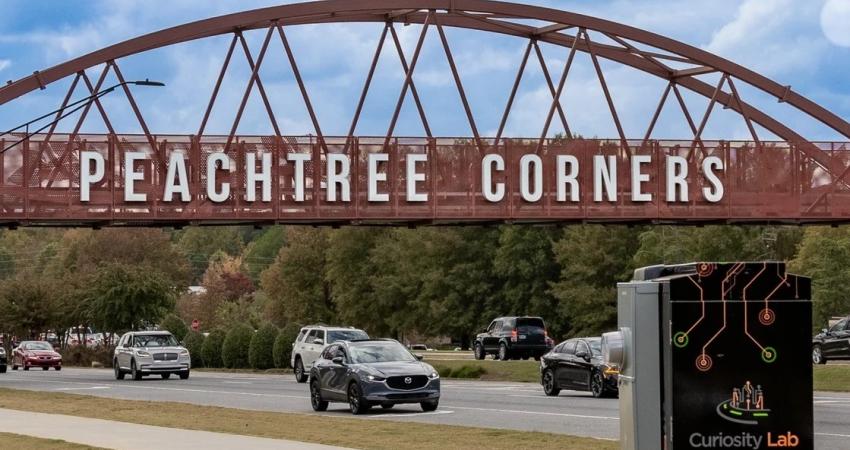Researchers have published the results of a three year project on developing and testing Cooperative ITS (C-ITS) on a 17 km stretch of the A58 motorway between Eindhoven and Tilburg in the Netherlands in a live traffic situation.
From early 2014 to late 2016, eleven consortia, representing 27 market partners and academic institutions, worked in collaboration with the Dutch authorities on the Shockwave Traffic Jams A58 project, with the objective of accelerating the introduction of cooperative systems in
Researchers have published the results of a three year project on developing and testing Cooperative ITS (C-ITS) on a 17 km stretch of the A58 motorway between Eindhoven and Tilburg in the Netherlands in a live traffic situation.
From early 2014 to late 2016, eleven consortia, representing 27 market partners and academic institutions, worked in collaboration with the Dutch authorities on the Shockwave Traffic Jams A58 project, with the objective of accelerating the introduction of cooperative systems in the Netherlands. The means for achieving this was the development of a shockwave traffic jam service: an in-car service that, after up-scaling, would prevent or reduce shockwave traffic jams.
Shockwave Traffic Jams A58 was concluded in late 2016. According to the participants, the tests have demonstrated that the system as delivered works and that the shockwave traffic jam service does offer the potential of reducing shockwave traffic jams.
Also relevant is the fact that the system can be scaled up, continued and transferred and has also proven to be ‘privacy-proof’. This is due to its smart architecture, which means the Shockwave Traffic Jams A58 system ended up being not a bespoke system that can only prove its worth on the A58, but an open and generic system that can be easily expanded both geographically for use in other regions and functionally, making it suitable for other applications.
However, this does not mean that cooperative technology will be available throughout the Netherlands as early as tomorrow. Development will continue in, for example, the public-private Talking Traffic Partnership, in order to strengthen the ties between roadside and vehicles.
From early 2014 to late 2016, eleven consortia, representing 27 market partners and academic institutions, worked in collaboration with the Dutch authorities on the Shockwave Traffic Jams A58 project, with the objective of accelerating the introduction of cooperative systems in the Netherlands. The means for achieving this was the development of a shockwave traffic jam service: an in-car service that, after up-scaling, would prevent or reduce shockwave traffic jams.
Shockwave Traffic Jams A58 was concluded in late 2016. According to the participants, the tests have demonstrated that the system as delivered works and that the shockwave traffic jam service does offer the potential of reducing shockwave traffic jams.
Also relevant is the fact that the system can be scaled up, continued and transferred and has also proven to be ‘privacy-proof’. This is due to its smart architecture, which means the Shockwave Traffic Jams A58 system ended up being not a bespoke system that can only prove its worth on the A58, but an open and generic system that can be easily expanded both geographically for use in other regions and functionally, making it suitable for other applications.
However, this does not mean that cooperative technology will be available throughout the Netherlands as early as tomorrow. Development will continue in, for example, the public-private Talking Traffic Partnership, in order to strengthen the ties between roadside and vehicles.













